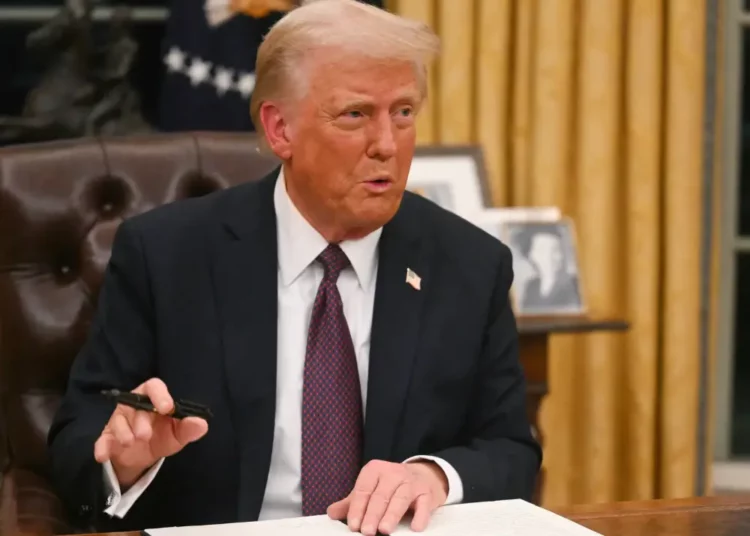In a controversial move, former President Donald Trump has signed an executive order directing the United States to withdraw from the World Health Organization (WHO). This decision, announced Monday, will sever the agency from one of its largest funding sources, with the US contributing $662 million—nearly 19% of the WHO’s total revenue during the 2024-25 budget cycle.
“The WHO continues to demand unfairly onerous payments from the United States, far out of proportion with other countries’ assessed payments,” the executive order stated, according to the White House website.
Trump’s Rationale
“World Health ripped us off,” Trump said. “Everybody rips off the United States. It’s not going to happen anymore.”
The Geneva-based WHO plays a pivotal role in tackling global health threats, focusing on infectious diseases, chronic health conditions like cancer and heart disease, and humanitarian crises. A US withdrawal could leave the organization critically underfunded, potentially undermining its efforts to combat diseases such as HIV, polio, cholera, dengue, mpox, and the Marburg virus.
Historical Context
This isn’t Trump’s first attempt to cut ties with the WHO. During his first term, he criticized the organization for allegedly deferring to the Chinese government during the initial stages of the COVID-19 pandemic and for its perceived delay in responding to the crisis. At the time, health advocates and Democratic lawmakers decried the move as a political manoeuvre to divert attention from the administration’s mishandling of the pandemic.
The withdrawal process, as outlined in the 1948 agreement when the US joined the WHO, requires a one-year notice and the full payment of financial obligations. Trump’s initial effort in 2020 was reversed by President Joe Biden in January 2021 before the notice period elapsed.
Implications and Next Steps
The executive order calls for pausing all future transfers of US government funds and resources to the WHO. It also tasks the director of the White House Office of Pandemic Preparedness and Response Policy with reviewing and replacing the 2024 US Global Health Security Strategy.
Whether an American president can unilaterally withdraw from the WHO remains legally ambiguous. A 2020 Congressional Research Service report noted the uncertainty of such authority without congressional approval. However, with a Republican-controlled Congress, blocking Trump’s directive appears unlikely.
Global Impact
A US departure would significantly impact the WHO, which has historically played a key role in eradicating diseases like smallpox and continues to lead global health initiatives. The move raises questions about how the organization will address funding shortfalls while maintaining its critical work in responding to health emergencies and fostering international collaboration.
World leaders now face a pressing dilemma: whether to engage with Trump’s administration or wait for potential changes in US leadership. As this story develops, the global health community braces for the repercussions of this landmark decision.
Join the conversation on global topics that matter! Dive into thought-provoking articles, share your insights, and become a part of the Impaakt community. Explore more at Impaakt.co – Your platform for meaningful engagement!











